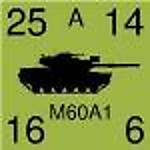Quoted Text
Kurt, Bob, have either of you TRIED a set of the GH cutters? I'm not being argumentative, I just had exactly the same opinion as both of you, until I needed a new set of cutters and after doing some research decided to spend the money and try for myself.
@John: Sadly, I've not had the chance to try out most of the cutters mentioned in this thread! GH cutters apparently have impressed many as being a fine cutter, and I'm sure that I would enjoy using them at least as much as I enjoy using any tool which does well what I want it to!
But maybe the "what one wants it to do" is the real point?
KL has pretty clearly identified this salient point regarding tools and the JOB one buys tools to do... KL notes, as did I, that what he uses the cutter to do is to remove parts from runners - NOT to "finish" that part for attachment. Parts-removal is the JOB he, and I, buy cutters to do. I suspect that is actually what most of the folks posting here buy cutters to do. And the way I, and apparently KL, see it is... Buy the tool which works to do the job. And pay as much as that doing task well is reasonably worth.
I personally LOVE tools. Fine (and often costly) tools. I have scads of them. As a research biologist, I bought only the best stereomicroscopes - Wild-Leica for me! Better 'scopes provide better support for your developed fine observation skills and technique. Same with cameras. These tools do range in quality and "functional usability", and if you have high demands for the tool in doing a complex, key and critical job, it pays to get a very good tool... and back that expensive, great tool up with careful development of skill and technique in using it. Objective being to ultimately perform the final job BETTER: To get better and more-consistent exploration of minutiae in bio-specimens, to get better pictures as a photographer, etc. Great tools used with great skill produce great results. Buying a better 'scope and then not learning to use it to its capability to actually get better performance of your complex, demanding job is a waste of money. A super-good pro-grade camera does not make one a better photographer if you don't also really learn photo-techniques to take advantage of that better tool's capabilities. Owning a fine precision rifle does not make one a marksman.
I think that probably everyone here likes tools and revels in techniques - and we all want to get good builds out of our time and money.
But cutting parts off sprues isn't a complex, critical task. Aside from damaging a part thru faulty technique, it doesn't contribute much to the final build quality! I don't see where a "better" cutter will save time, nor how it really improves parts-prep for fitting to a build. And it's those things - saving time and getting a better build out of my effort - which are worth spending more money on!
The most-expensive, best-made cutter won't do anything to improve my modeling over a cheap-but-functional clipper used with care and attention to cutting technique. I'm still going to have to do further effort after removing parts from sprues (the cutter's rather limited function and capability in the job of building a model) by doing whatever trimming, detailing, sanding, and fitting is needed to get the most out of that part on the build!
Everyone is different. I have ancient side-cutters seconded from a pile of old electronics tools. They do fine at cutting parts from sprues. (I bought a new cutter at HL only because I was on travel without a cutter!). I learned to avoid trying to cut tiny, frail bits off with the cutters, and use a knife-and-tape technique to handle those things. I don't lose parts to the carpet monster during cutting from sprues... (Handling tiny bits after clipping has, on the other hand, resulted in fly-aways!

) and I don't damage them by cutting. Cutters are a tool to do a pretty limited, simple step in the process of building a model.
Cutters are much more like hammers then like cameras! And a cheap-but-solid hammer drives nails just fine!
My philosophy on tools (other then as collectibles...) is "buy the one which does WELL what YOU want it to do." The term "best" is really much more a marketer's claim and a relative / comparative opinion (often by enthusiasts and members of "cliques") then it is any sort of actual objective standard. The OP wants to know about buying a tool to do a job. It is, I think, more than moderately valid to actually identify WHAT the real JOB / task of the tool is, and discuss buying the tools in light of understanding the real constraints, parameters, and its worth of that task is relative to the ultimate "job" being done. (PS: I built real prototype circuit-boards as a teenager in the 60's and early 70's - I used Lindstrom cutters... but also cheapo's from Radio-Shack. The inspecting engineer couldn't tell which parts I trimmed with which tool... But I knew! LoL!)
Buy the tool which does the job that YOU WANT IT TO DO.
Just my thoughts on this issue!





































